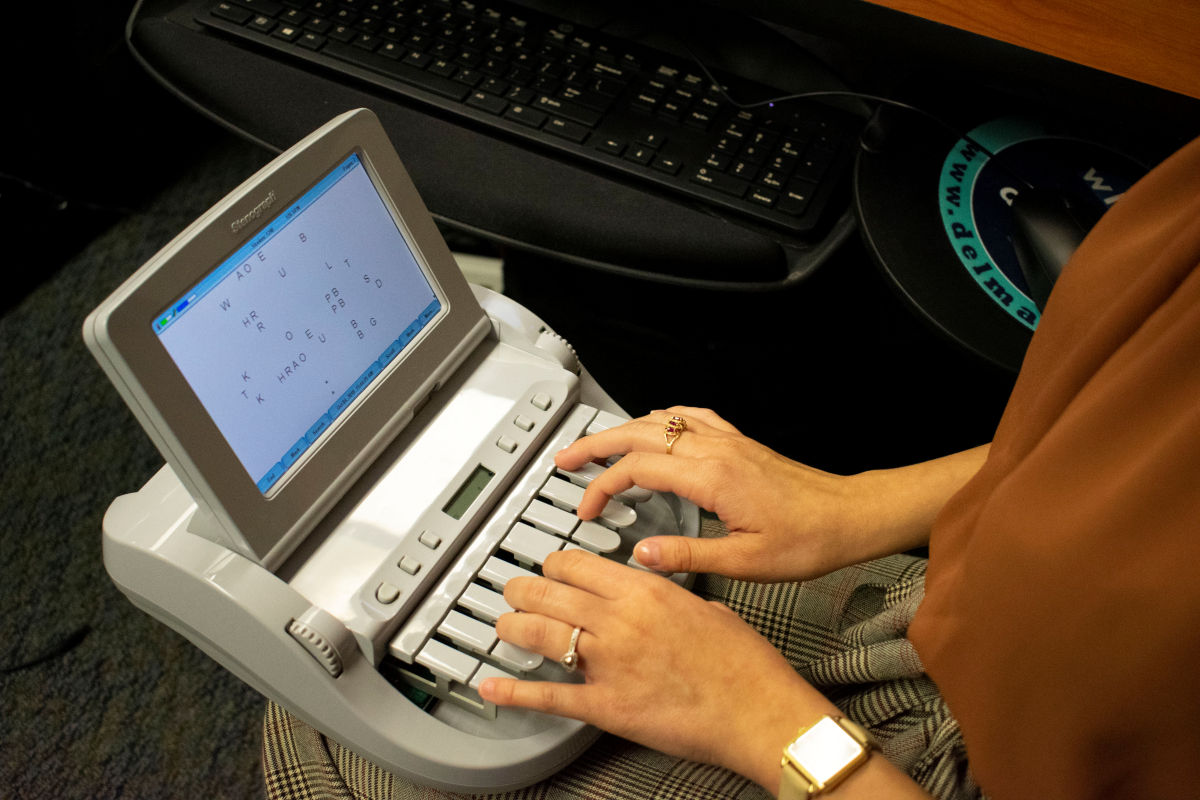Understanding How court reporting Impacts Appeals and Legal Reviews
Understanding How court reporting Impacts Appeals and Legal Reviews
Blog Article

The Future of Court Coverage: Developments and Trends Shaping the Sector
As you discover the future of court coverage, you'll notice a shift driven by modern technology and innovation. Real-time transcription and AI applications are improving exactly how legal process are recorded. With remote depositions getting grip, the landscape is developing swiftly. It questions about the duty of court reporters and the abilities they'll need progressing. What does this mean for specialists in the area? The answer could surprise you.
The Effect of Artificial Knowledge on Court Coverage
As man-made knowledge proceeds to advance, it's improving the landscape of court reporting in means you may not expect. AI can analyze huge amounts of legal message, aiding you identify relevant criteria and simplify situation preparation.
Furthermore, AI can improve the preparation procedure by supplying anticipating analytics, which can assist you expect trial results based on historic information. With AI managing routine jobs, you can focus more on your core responsibilities, such as making certain accuracy and supplying vital lawful understandings.
Real-Time Transcription: Enhancing Accuracy and Efficiency
Real-time transcription has transformed the court reporting process, making it less complicated than ever for you to record precise documents right away. With sophisticated technology, you can currently supply instant records throughout hearings or depositions, ensuring that all celebrations have accessibility to vital information immediately. This immediacy not only boosts the overall performance of the lawful procedure yet likewise allows you to concentrate on the dialogue, instead of scrambling to catch up.
By welcoming this technology, you're not just improving your process; you're establishing a brand-new criterion in court coverage that prioritizes precision and performance. This forward-thinking method positions you at the center of the developing lawful landscape.
The Increase of Remote Depositions

With the growing demand for flexibility in legal procedures, remote depositions have actually emerged as a game-changer in court coverage. You can currently join depositions from anywhere, eliminating travel time and expenses. This benefit allows you to concentrate on what absolutely matters-- preparing your instance.
Remote depositions make use of advanced modern technology, allowing real-time interaction and file sharing. You can engage with witnesses and lawyers flawlessly, making particular that every person stays connected despite their physical location. This approach not just conserves time however also expands your pool of specialist witnesses, as geographical barriers become less of a problem.
As remote depositions gain appeal, it's crucial to adapt to this brand-new standard. Acquaint on your own with the essential devices and procedures to assure a smooth experience - court reporting. Welcoming this advancement can give you a competitive edge, enabling you to navigate the ever-evolving landscape of legal proceedings properly
Digital Courtrooms: Transforming the Legal Landscape
As you enter the world of electronic courts, you'll discover just how digital hearing innovation is improving lawful procedures. This shift not just makes gain access to much easier but likewise boosts transcription accuracy, ensuring every word is captured correctly. Embracing these advancements can considerably enhance the performance of the legal process.
Virtual Hearing Modern Technology
While the conventional court setting has long been a symbol of justice, the rise of virtual hearing modern technology is improving how legal procedures are performed. In addition, online hearings can boost participation, enabling witnesses and professionals to supply statement without the constraints of location. As you adapt to these modifications, you'll discover that virtual hearings keep the stability of the legal procedure while welcoming advancement, ultimately transforming the method justice is offered in the modern world.
Enhanced Transcription Accuracy
Enhanced transcription precision is revolutionizing the legal area, making court process much more reliable than ever. With innovations in speech acknowledgment technology and AI-driven tools, you can anticipate to see a considerable decrease in transcription mistakes. These innovations not only capture every word talked however likewise account for subtleties in tone and context, enhancing general understanding. As a result, important information aren't shed in translation, guaranteeing that the honesty of the legal procedure is maintained. Real-time transcription allows you to accessibility precise records instantaneously, facilitating smoother interaction throughout tests. Embracing these modern technologies means you're entering a future where clarity and precision in legal documents are critical, eventually profiting all parties included in the judicial system.
The Function of Court Reporters in Virtual Hearings
Stenotype reporter play an important function in digital hearings, guaranteeing that every word talked is precisely caught and recorded in real-time. As a court reporter, you facilitate communication between celebrations, making complex legal process obtainable. Your knowledge in legal terms and the capability to swiftly adapt to numerous speakers are essential in this digital setting.
During virtual hearings, you keep an undeviating focus, even amidst technical challenges or disturbances. You supply a clear, written document that can be referenced later on, aiding judges, lawyers, and customers recognize the proceedings. Your skills in guiding different platforms guarantee that you can flawlessly incorporate right into any online setup.
In addition, you also assist copyright the integrity of the judicial process, validating that every individual's voice is heard. By doing this, you not only improve the performance of legal proceedings yet likewise add to the total justness and openness of the justice system.
Developments in Documentation and Record Maintaining
As modern technology advances, advancements in documentation and record keeping are transforming just how stenotype reporter catch and manage lawful transcripts. You'll discover that digital tools allow for quicker and extra accurate transcription, minimizing the opportunities of human mistake. Cloud-based storage space options allow you to firmly save and accessibility records from anywhere, making cooperation with lawful teams seamless.
Synthetic intelligence is likewise playing a considerable function, assisting with real-time transcription and also providing clever editing and enhancing functions. These innovations not only boost performance yet also assure that you can supply top dig this quality paperwork in a fast-paced lawful setting.
Additionally, the assimilation of voice recognition software streamlines the process, allowing you to concentrate extra on the nuances of the procedures instead of just typing. By welcoming these innovations, you're positioned to boost your abilities and meet the demands of contemporary court reporting properly.
Future Skills and Training for Court Reporters
While modern technology improves the landscape of lawful proceedings, it's important for court press reporters to adapt by getting brand-new skills and training. You'll need to familiarize yourself with advanced transcription software and electronic reporting tools to stay competitive. Accepting expert system and real-time captioning will boost your effectiveness and precision.
Additionally, establishing strong research study and logical skills is important. You'll often come across complex legal lingo and procedures, so understanding lawful principles will sharpen your reporting. Online courses and workshops can supply valuable insights right into these areas.
Connecting with various other specialists will also aid you stay upgraded on industry patterns. Joining organizations or attending conferences can reveal you to brand-new modern technologies and ideal methods.
Ultimately, sharpening your social skills will certainly boost communication with attorneys and clients. By focusing on these areas, you'll position yourself for success in the evolving area of court reporting.
Often Asked Inquiries

What Credentials Are Required to Come To Be a Stenotype Reporter Today?
To end up being a stenotype reporter today, you'll need a high school diploma, specialized training in court reporting, and qualification, commonly via a nationwide exam. Solid keying skills and interest to information are vital for success.
Just How Can Court Reporters Stay Updated With New Technologies?
To stay updated with new technologies, you need to go to workshops, join expert organizations, and subscribe to appropriate publications. Networking with peers and participating in on the internet discussion forums can also maintain you educated concerning the current improvements.
What Is the Average Wage for Court Reporters Currently?
The average income for court press reporters varies by place and experience, but you can expect around $50,000 to $70,000 annually. In some areas, experienced reporters can earn a lot more, particularly with specialized skills.
Exist Task Opportunities for Court Reporters in Non-Legal Area?
Yes, there are work possibilities for stenotype reporter in non-legal Clicking Here fields. You can discover duties in closed captioning, transcription services, and media, where your skills in recording spoken language are extremely valued and searched for.
Just How Does Court Coverage Differ in Numerous Countries?
Court reporting varies significantly across countries. You'll locate differences in terms, innovation, and lawful systems. For circumstances, some countries stress electronic other coverage, while others still rely upon traditional stenography methods for catching spoken words.
Report this page